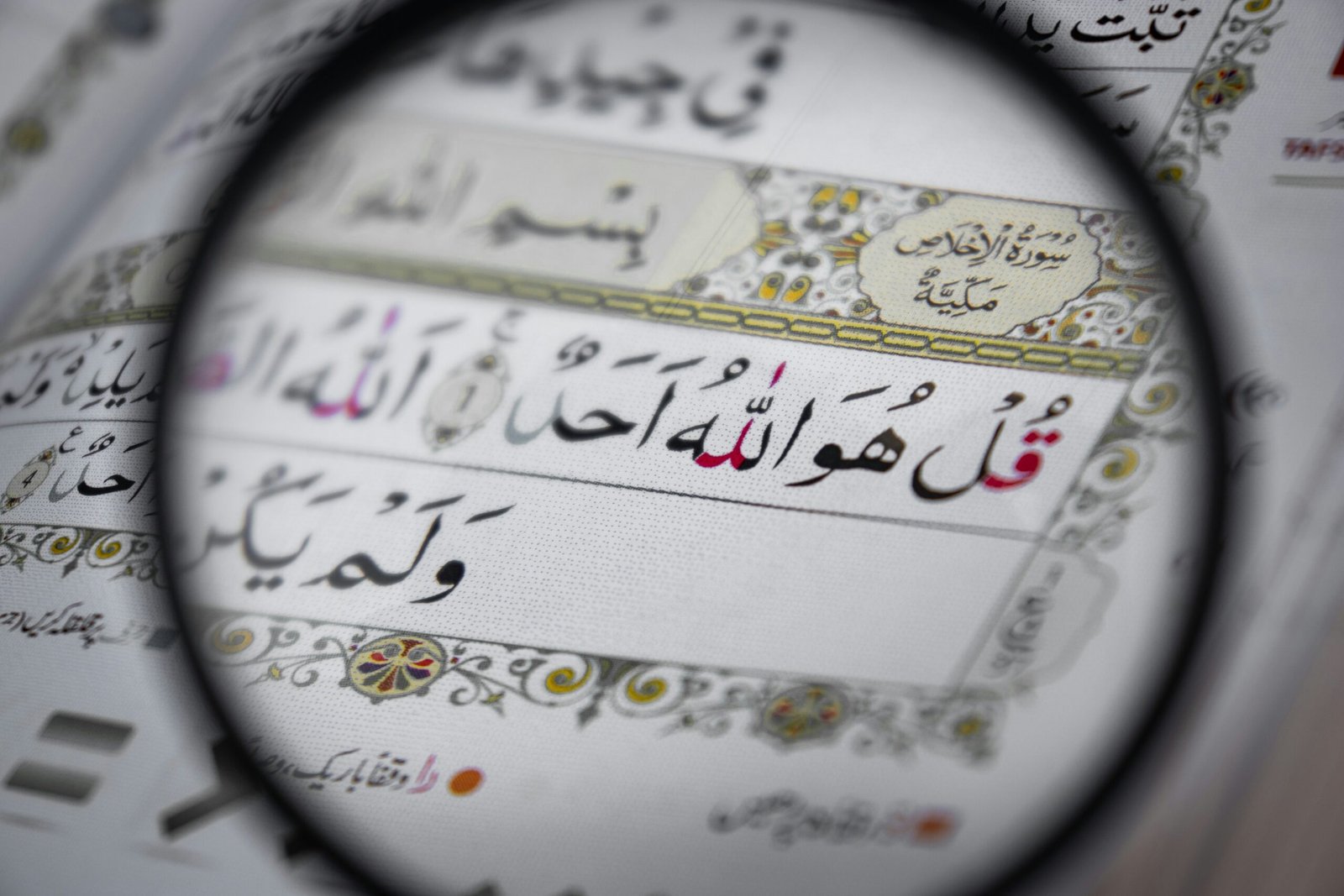In Islam, the term “Allah” is the unique personal name of the One true God, reflecting a concept of God that is distinct and unparalleled. Unlike the word “god,” which can be plural or gendered, “Allah” has no such variations. This uniqueness is emphasized in Aramaic, the language of Jesus and a sister language of Arabic.
Islam associates a profound concept with God, viewing Allah as the Almighty, Creator, and Sustainer of the universe—beyond comparison or likeness. This concept is succinctly expressed in chapter 112 of the Quran, emphasizing God’s oneness and incomparability, which reads:
“In the name of God, the Merciful, the Compassionate. Say (O Muhammad) He is God the One God, the Everlasting Refuge, who has not begotten, nor has been begotten, and equal to Him is not anyone.”
Contrary to the misconception that Allah is stern and unloving, Islam underscores God’s attributes of mercy and compassion. The Quran begins all but one of its chapters with the phrase “In the name of God, the Merciful, the Compassionate.” In one of the sayings of Prophet Muhammad (PBUH) we are told that “God is more loving and kinder than a mother to her dear child.”
But God is also Just. Hence evildoers and sinners must have their share of punishment and the virtuous, His bounties and favors. Actually God’s attribute of Mercy has full manifestation in His attribute of Justice. People suffering throughout their lives for His sake and people oppressing and exploiting other people all their lives should not receive similar treatment from their Lord. Expecting similar treatment for them will amount to negating the very belief in the accountability of man in the Hereafter and thereby negating all the incentives for a moral and virtuous life in this world. The following Quranic verses are very clear and straightforward in this respect:
“Verily, for the Righteous are gardens of Delight, in the Presence of their Lord. Shall We then treat the people of Faith like the people of Sin? What is the matter with you? How judge you?” (68:34-36)
Islam firmly rejects humanizing God or attributing human characteristics to Him. All humans are created equal. They may distinguish themselves and get His favor through virtue and piety only.
The unique usage of Allah as a personal name of God is a reflection of Islam’s emphasis on the purity of the belief in God which is the essence of the message of all God’s messengers. Because of this, Islam considers associating any deity or personality with God as a deadly sin which God will never forgive, despite the fact He may forgive all other sins.
[Note that what is meant above applies ONLY to those people who die in a state wherein they are associating others with God. The repentance of those who yet live is acceptable to God if He wills.]
The Creator must be of a different nature from the things created because if he is of the same nature as they are, he will be temporal and will therefore need a maker. It follows that nothing is like Him. If the maker is not temporal, then he must be eternal. But if he is eternal, he cannot be caused, and if nothing outside him causes him to continue to exist, which means that he must be self-sufficient. And if the does not depend on anything for the continuance of his own existence, then this existence can have no end. The Creator is therefore eternal and everlasting: “He is the First and the Last.”
He is Self-Sufficient or Self-Subsistent or, to use a Quranic term, Al-Qayyum. The Creator does not create only in the sense of bringing things into being, He also preserves them and takes them out of existence and is the ultimate cause of whatever happens to them.
“God is the Creator of everything. He is the guardian over everything. Unto Him belong the keys of the heavens and the earth.” (39:62, 63)
“No creature is there crawling on the earth, but its provision rests on God. He knows its lodging place and it repository.” (11:6)
Published by: The Institute Of Islamic Information And Education, III&E Brochure Series; No. 2
